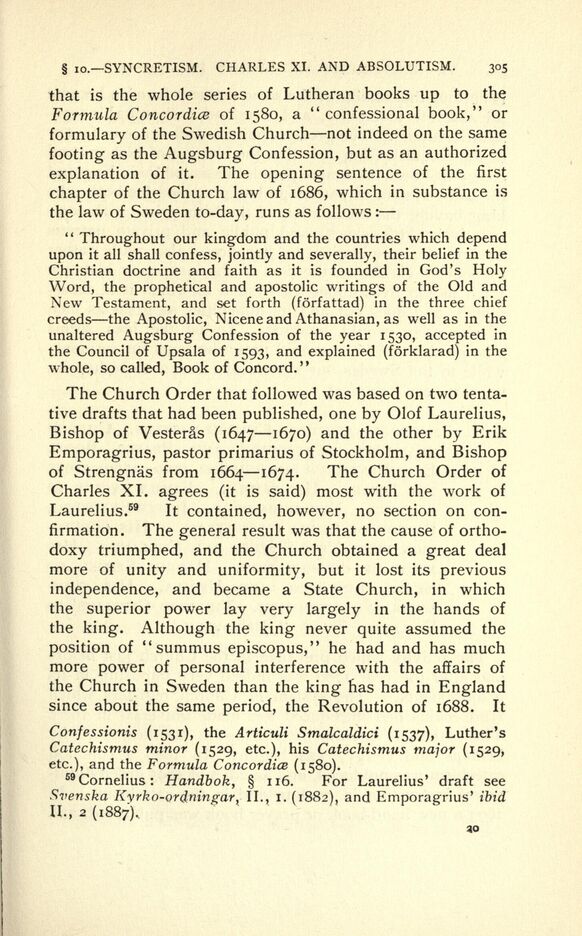
Full resolution (JPEG) - On this page / på denna sida - VI. From the Upsala-möte to the death of Charles XII. The Great Kings and the Great Bishops (1592—1718 A.D.)

<< prev. page << föreg. sida << >> nästa sida >> next page >>
Below is the raw OCR text
from the above scanned image.
Do you see an error? Proofread the page now!
Här nedan syns maskintolkade texten från faksimilbilden ovan.
Ser du något fel? Korrekturläs sidan nu!
This page has never been proofread. / Denna sida har aldrig korrekturlästs.
io. SYNCRETISM. CHARLES XI. AND ABSOLUTISM. 305
that is the whole series of Lutheran books up to the
Formula Concordice of 1580, a
"
confessional book," or
formulary of the Swedish Church not indeed on the same
footing as the Augsburg Confession, but as an authorized
explanation of it. The opening sentence of the first
chapter of the Church law of 1686, which in substance is
the law of Sweden to-day, runs as follows :
"
Throughout our kingdom and the countries which depend
upon it all shall confess, jointly and severally, their belief in the
Christian doctrine and faith as it is founded in God s Holy
Word, the prophetical and apostolic writings of the Old and
New Testament, and set forth (forfattad) in the three chief
creeds the Apostolic, Niceneand Athanasian, as well as in the
unaltered Augsburg Confession of the year 1530, accepted in
the Council of Upsala of 1593, and explained (forklarad) in the
whole, so called, Book of Concord."
The Church Order that followed was based on two tenta
tive drafts that had been published, one by Olof Laurelius,
Bishop of Vesteras (1647 1670) and the other by Erik
Emporagrius, pastor primarius of Stockholm, and Bishop
of Strengnas from 1664 1674. The Church Order of
Charles XI. agrees (it is said) most with the work of
Laurelius.59
It contained, however, no section on con
firmation. The general result was that the cause of ortho
doxy triumphed, and the Church obtained a great deal
more of unity and uniformity, but it lost its previous
independence, and became a State Church, in which
the superior power lay very largely in the hands of
the king. Although the king never quite assumed the
position of
<< prev. page << föreg. sida << >> nästa sida >> next page >>